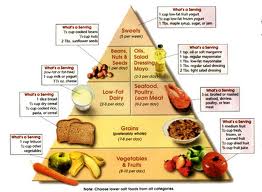Heart Healthy Diet
“Eat to Your Heart’s Content”
No diet is a one-size fits all approach. Dr . Caren and Dr. Urman remind us that the origin of the word “diet” is via Latin from Greek, diaita which means ‘a way of life.’ Thus, it is not just a list of portions and what meal on what day but rather a way of not only eating, but cooking, shopping and living. Cardiologists often have to prescribe drugs to help ones heart health but eating healthy allows specific foods from nature to promote heart health. The diets listed below have shown benefits as strong as blockbuster drugs.
The word “diet” usually implies one will be restricted or deprived which is why for most people, being on a diet is not sustainable. However, if you approach your eating habits and food choices as a general way of life, then you can have a sustainable, joyful, and pleasurable way of eating and living. Remember that it’s not only knowing what you shouldn’t eat, but also knowing what you should eat which empowers you to feel good and feel that you are free to choose rather than depriving yourself.

When it comes to the treatment or prevention of heart disease, Drs Caren and Urman believe in being up-to-date with evidence based effective options. Medical therapy, when prescribed thoughtfully and appropriately clearly has a role and is proven to be beneficial. A heart-healthy diet has been proven to have benefit. But they realize that the right diet and the right medications can be synergistic leading to the best outcomes for their patients.
Some bottom line, common sense general advice no matter what type of diet you wish to follow:
- Try to eat unprocessed “real” or “whole” foods as much as possible. This also includes avoiding processed meat as there is a positive association in those who eat more processed (and red) meat and risk of mortality, especially deaths from cardiovascular disease and cancer.
- Try to eat lots of different foods – variety is key – in small portions. Broad dietary choices are consistent with long term good health
- Try to eat a variety of dairy (if you have no other dietary restrictions with dairy).
- Eat as much of a variety and amount of fruits and vegetables as possible including seeds and legumes. There is established evidence that the more daily fruit and vegetables consumed, the lower the risk of coronary heart disease.
- Oh nuts! Several studies now have shown significant reduction in the risk of not just heart disease but mortality in those who eat more nuts on a regular basis (obviously not salted)
- Diet should be enjoyable and sustainable
- Which Americans live the longest? — pesco-vegetarians, or those who consume a vegetarian diet with the addition of fish.
…and what’s the deal with carbs?
Following a “low-carb” diet will help one lose weight in the short-term. However, totally avoiding carbohydrates in the diet is not a healthy balance in the long run.
In the long run, the key is to avoid “bad” or “low-quality” carbs, like heavily processed grains and snack foods with added sugar. In general, packaged goods should be avoided. Whole-grain rice is better than brown rice which is better than white rice but occasional white rice in moderate amounts if accompanied by a lot of fruits and vegetables is not necessarily such a bad thing. Whole-wheat pasta is better than regular pasta but occasional small portions of pasta accompanied by healthy amounts of veggies and healthy protein can be part of a heart-healthy balanced diet. Sourdough and whole-wheat bread is better than other breads but bread in general should be kept to a minimum. Potatoes, especially when fried (admittedly a weakness for Dr. Urman) should be kept to a minimum.
“High-quality” carbohydrates like beans, fiber-rich whole grains, fruit and vegetables (other than potatoes) can and should be part of a balanced heart-healthy diet. Oatmeal (not instant) or Shredded wheat with bran can be a very healthy choice for breakfast when accompanied by other healthy choices.
Bottom line:
- Wise choices with balance and moderation
- Whole grains over refined grains and avoid processed foods
“Let food be thy medicine and medicine be thy food” – Hippocrates
Mediterranean Diet

Whatever specific part of the Mediterranean basin one goes, the dietary patterns exemplifying the traditional Mediterranean diet are simlar. They are diets rich in fruits, vegetables, legumes and whole grains and that include fish, nuts and low-fat dairy. Such diets also emphasize the use of vegetables oils rich in monounsaturated fats and low in saturated fats and void of products that contain hydrogenated and partially hydrogenated vegetable oils.
The Mediterranean diet is a centuries-old tradition that contributes to good health, provides a sense of well-being and pleasure and forms a vital part of the cultural heritage of these regions. These same practices can be adopted in your home to enhance your (and your family’s) well being and overall risk of heart disease and other chronic disease states. Click here to read about the latest on the Mediterranean diet with specific guidelines.
DASH Diet

Ornish Diet

TLC (Therapeutic Lifestyle Changes) Diet

TLC diet does not primarily target weight-loss; instead, it is for maintaining an ideal body weight and determining the ideal daily calorie intake. Click here for a guide to lowering cholesterol with TLC.
“He that takes medicine and neglects to diet himself wastes the skill of the physician” – Ancient Chinese Proverb
Healthy Diet Goals and More from the American Heart Association Nutrition Center

Tips for Heart Healthy Meals

Click here for tips on Health Food for Foodies as chefs and doctors are teaming up to create healthy dishes you might actually crave (Wall Street Journal interactive feature).
What is “The Inside Story” on “Whole Grains?”

Dietary Guidelines for Americans
Combining the goals of fewer calories (especially nutrient-poor calories from sugars, fats and refined grains) with more emphasis on nutrient-dense foods:
- Eat LOTS MORE vegetables and fruits, fill half your plate with them.
- Eat more legumes (green beans, peas, soy, nuts that aren’t salted)
- Choose lean meats and poultry, and replace some of them with seafood (more fresh fish).
- Consume mainly nonfat or low-fat milk and other dairy products.
- Eat more fiber-rich foods; replace refined grains and grain-based foods with whole-grain versions.
- Choose low-sodium products and use less salt and salty ingredients in food preparation.
- Use vegetable oils like olive and canola oil instead of solid fats like butter and margarine, but remember that all fats have lots of calories.
- Drink water, calorie-free beverages like coffee and tea. 100 percent fruit juice instead of regular sodas, fruit drinks and energy drinks (but the fruit itself is always better than fruit juice); limit alcoholic drinks to one a day for women, two for men.
- Eat out less (but when you do follow all of the above); cook at home more often but AVOID processed foods.
- Eat less and exercise more to achieve a better balance of caloric intake and output.
Click here for more detailed information on US Dietary Guidelines
And…don`t forget regular physical activity as an important part of a heart-healthy lifestyle.
“Walking is man’s best medicine”
“Eating alone will not keep a man well; he must also take exercise. For food and exercise work together to produce health.”
– Hippocrates 400 BC
Click here for more on exercise and the heart.
Combining a Heart-Healthy Diet with Regular Physical Activity and Exercise
In addition to preventing a heart attack, these healthy lifestyle measures will significantly reduce your risk of cancer, arthritis, and even memory loss. Not surprisingly, these steps are also strongly associated with living longer, feeling better and have no harmful side effects.
Updated 09/28/19
Written by and/or reviewed by Mark K. Urman, M.D. and Jeffrey F. Caren, M.D.
External links are provided for reference purposes and convenience only and are not an endorsement of either the linked-to-entity or any product or service. COR Medical Group, Inc is not responsible for the content of external Internet sites. Please see Terms of Use for more information.
©2019 COR Medical Group, Inc. Los Angeles, California. All Rights Reserved


